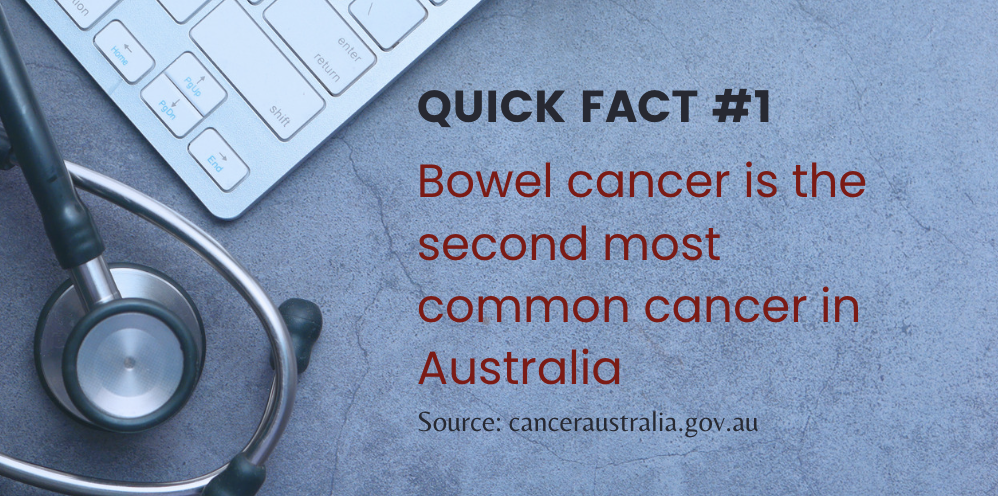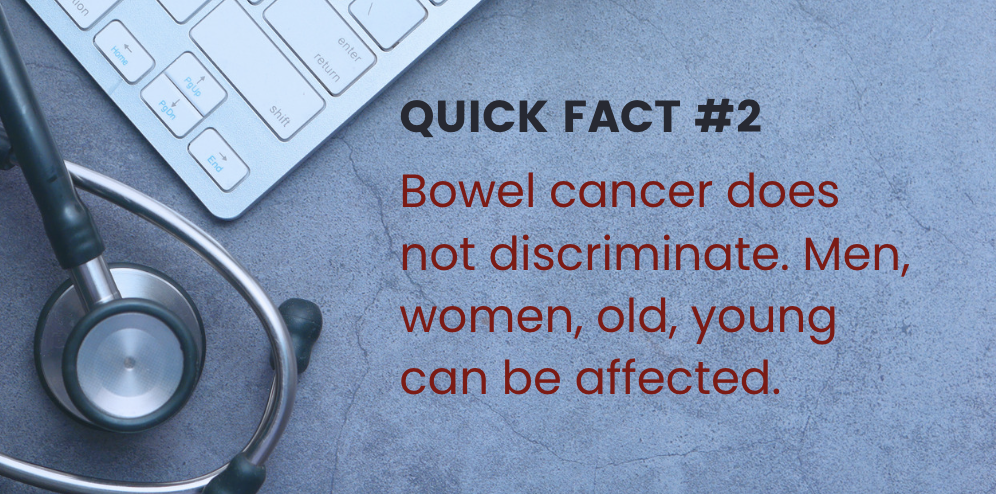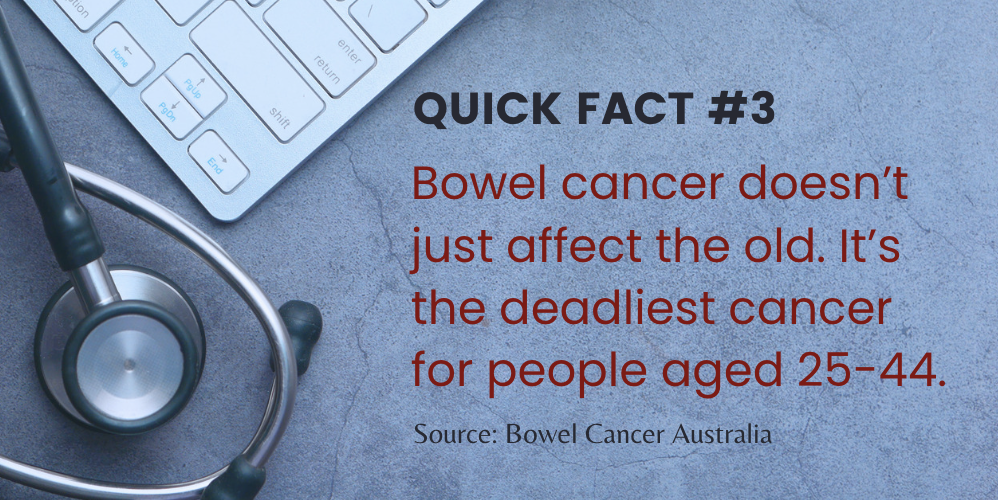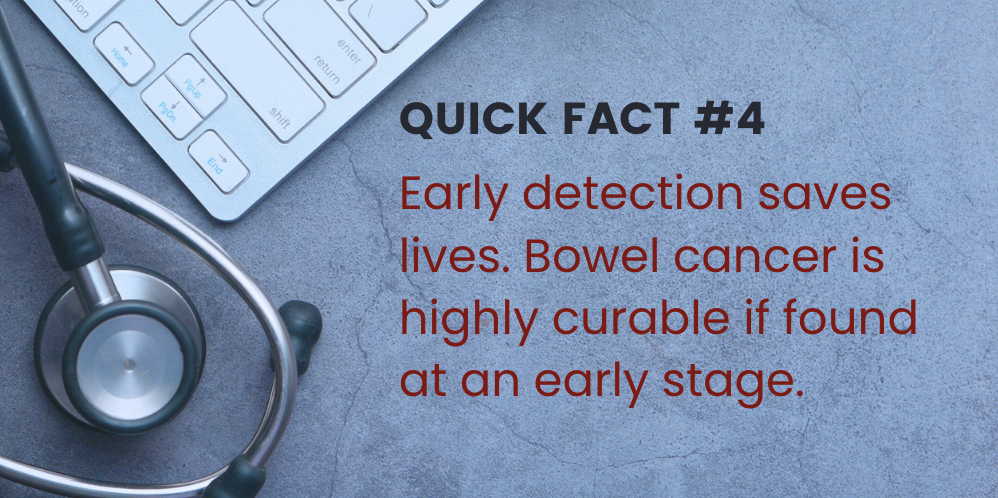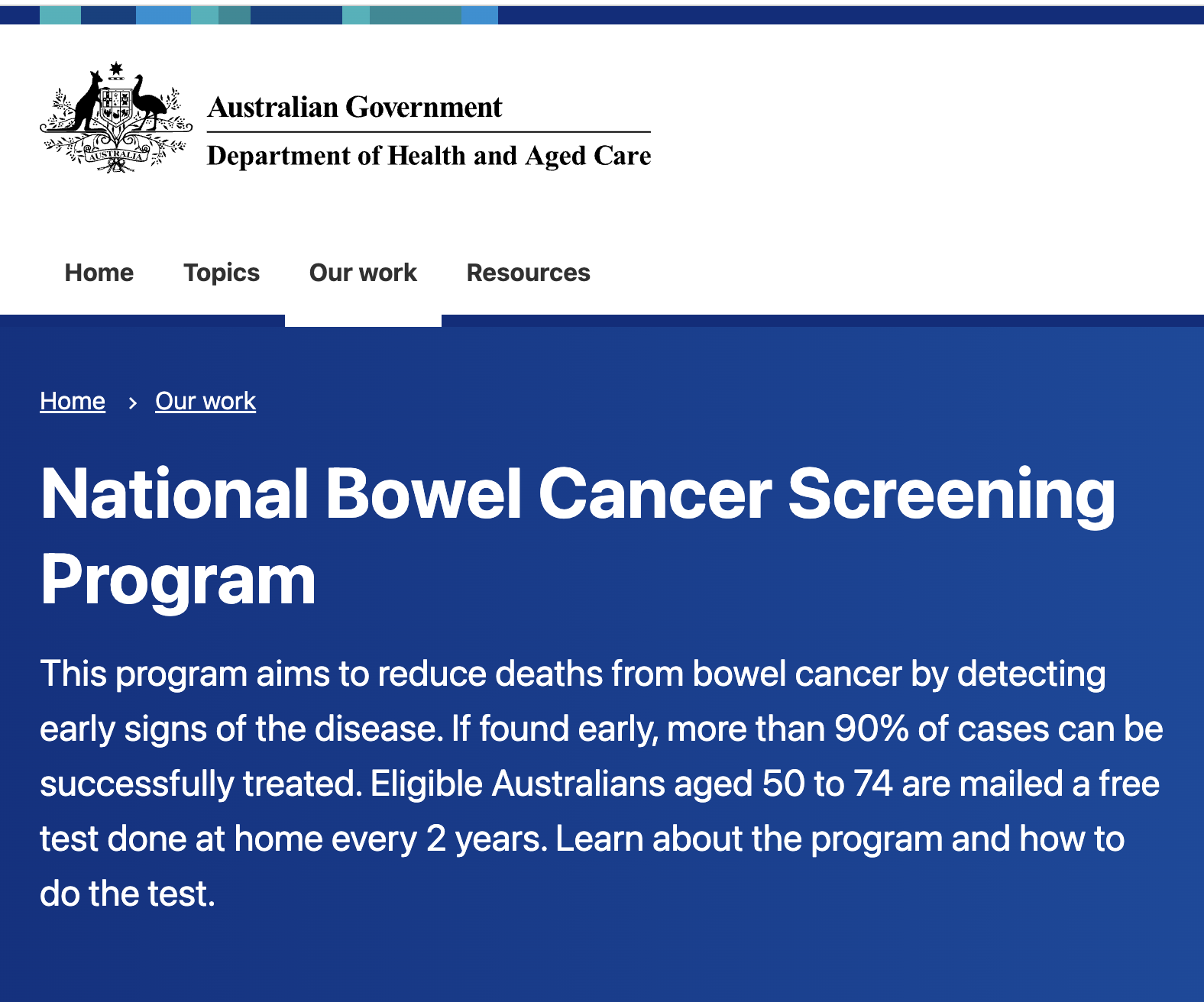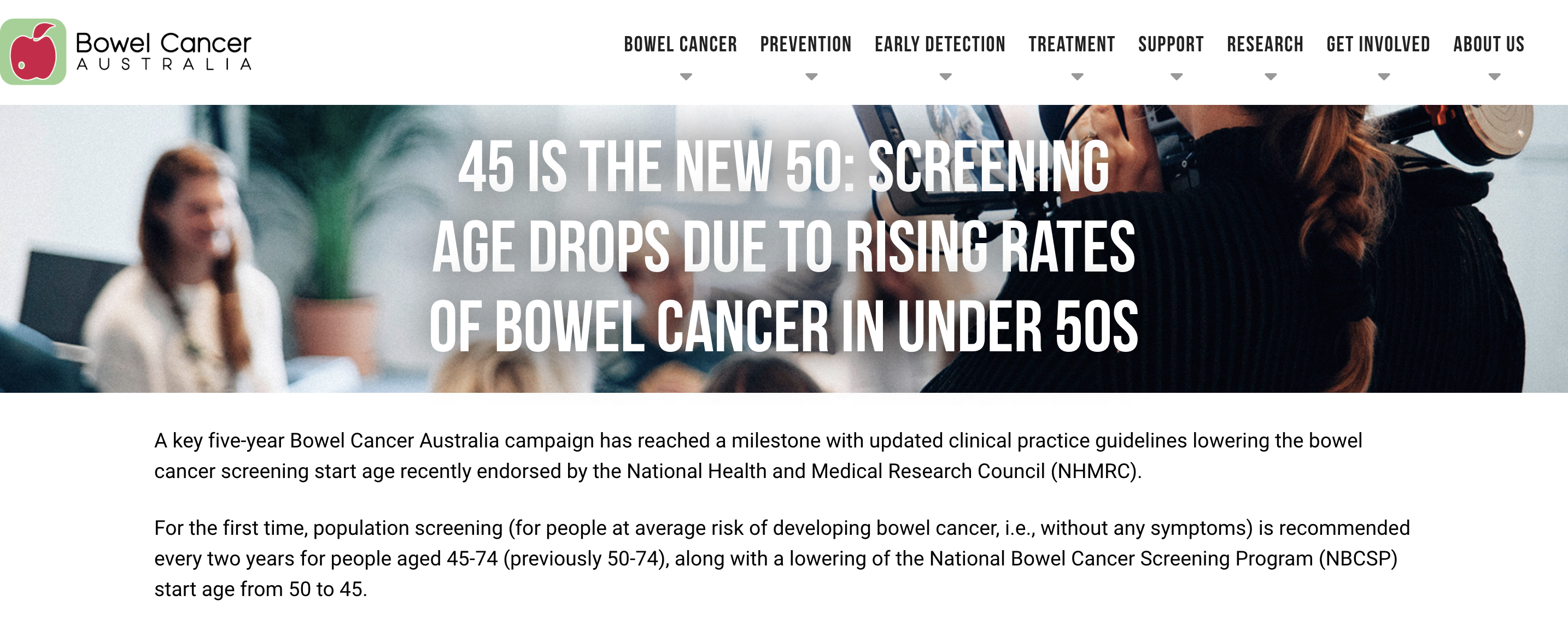Do I Need BOWEL CANCER SCREENING?
(*See ‘Never2Young’ initiative by Bowel Cancer Australia.)
Don’t delay getting symptoms checked. You’re never too young for bowel cancer*.
Why get screened? If found early, more than 90% of cases can be successfully treated.
When you experience symptoms such as rectal bleeding, abdominal pain or a noticeable change in your bowel habit — no matter your age — it’s important to seek an explanation. If you have any of these symptoms, or have a family history of bowel cancer, or are under 50 but would like to make sure you’re healthy and everything is okay, talk to your GP about a referral.
It’s incredibly important to understand your individual risk factors, know the symptoms that warrant screening, and not delay a screening procedure if one is recommended by your primary care doctor.
What if I don’t have symptoms?
Unfortunately, polyps and cancers are often not associated with symptoms. This is why understanding your own personal risk factors is very important. In the US, the American Cancer Society lowered the recommended screening age from 50 to 45 because bowel cancer cases are on the rise among young and middle-age people.

In Australia, 10.7% of bowel or colorectal cancer diagnoses now occur in people under 50. If you are concerned about your risk factors, please talk to your GP.
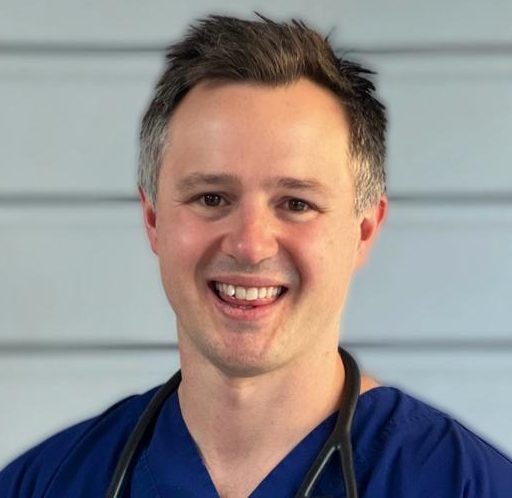
Dr Mat Keegan
Sydney
What can you do to reduce your risk of bowel cancer?
Endoscopic screening and maintaining a healthy lifestyle are two major approaches to bowel cancer prevention. Dr Keegan is a huge proponent of bowel cancer screening to facilitate early detection for high-risk patients, and he is also an advocate of helping his patients make healthy lifestyle choices that can reduce cancer risk.
Dr Keegan has a holistic, evidence-based and thorough approach to the care of his patients. Research shows that some risk factors — such as lifestyle or environmental risk factors — are modifiable. Dr Keegan wants to help his patients reduce their risk factors and achieve optimal health.
THE NUMBER OF AUSTRALIANS GETTING DIAGNOSED WITH BOWEL CANCER AT A YOUNGER AGE IS INCREASING.
Please visit these websites for more information and resources.
Bowel cancer screening
If detected early, bowel cancer can be successfully treated in more than 90% of cases. Having an earlier diagnosis also means there could be more options for minimally invasive treatments.

Minimally invasive procedures
Advanced interventional endoscopy allows the endoscopist to remove many lesions (pre-cancerous growth) from the inside, without the need for external incisions. Prior to the use of these advanced techniques, treatment of many early cancers in the gut or pre-cancerous change required surgery. Today, these procedures can often be done as an outpatient.
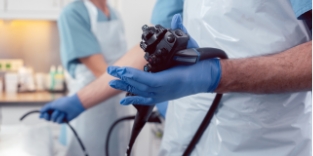
Swallowing difficulties
Difficulty swallowing or dysphagia could be a symptom of many different medical conditions. Minor issues could prevent the oesophagus or throat from working properly. But it could also be a symptom of something more serious such as oesophageal cancer. If you are experiencing this, talk to your GP.

Blood in the stool
Bowel cancer is usually a slow-growing cancer. There are often no symptoms in the early stages of the disease. One of the most common symptoms of bowel cancer include blood in the stool. However, many other conditions can cause this symptom, not just bowel cancer. To be sure it’s nothing serious, talk to your GP. Bleeding from the rectum should never be ignored. (Source: Cancer Australia)


